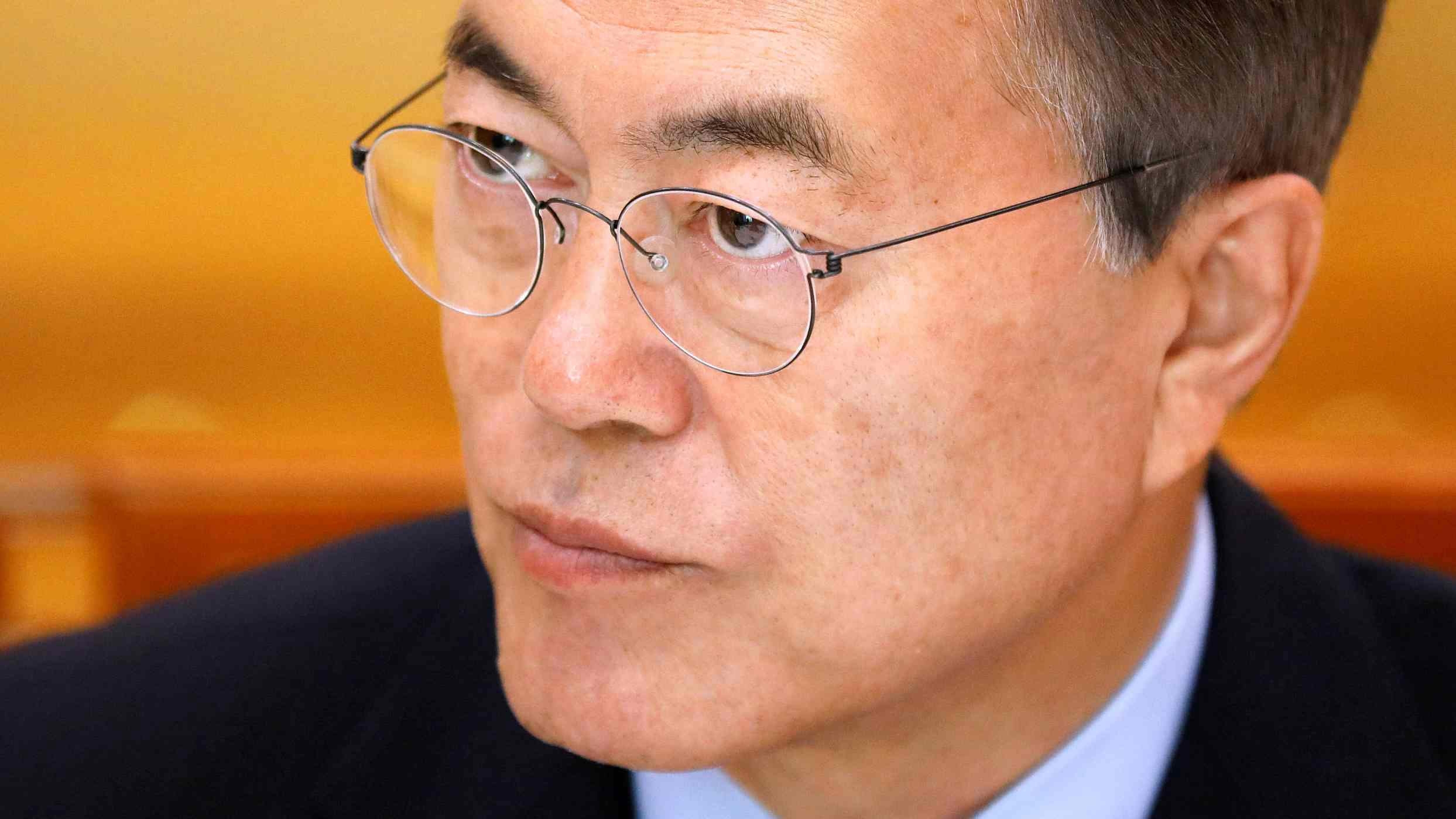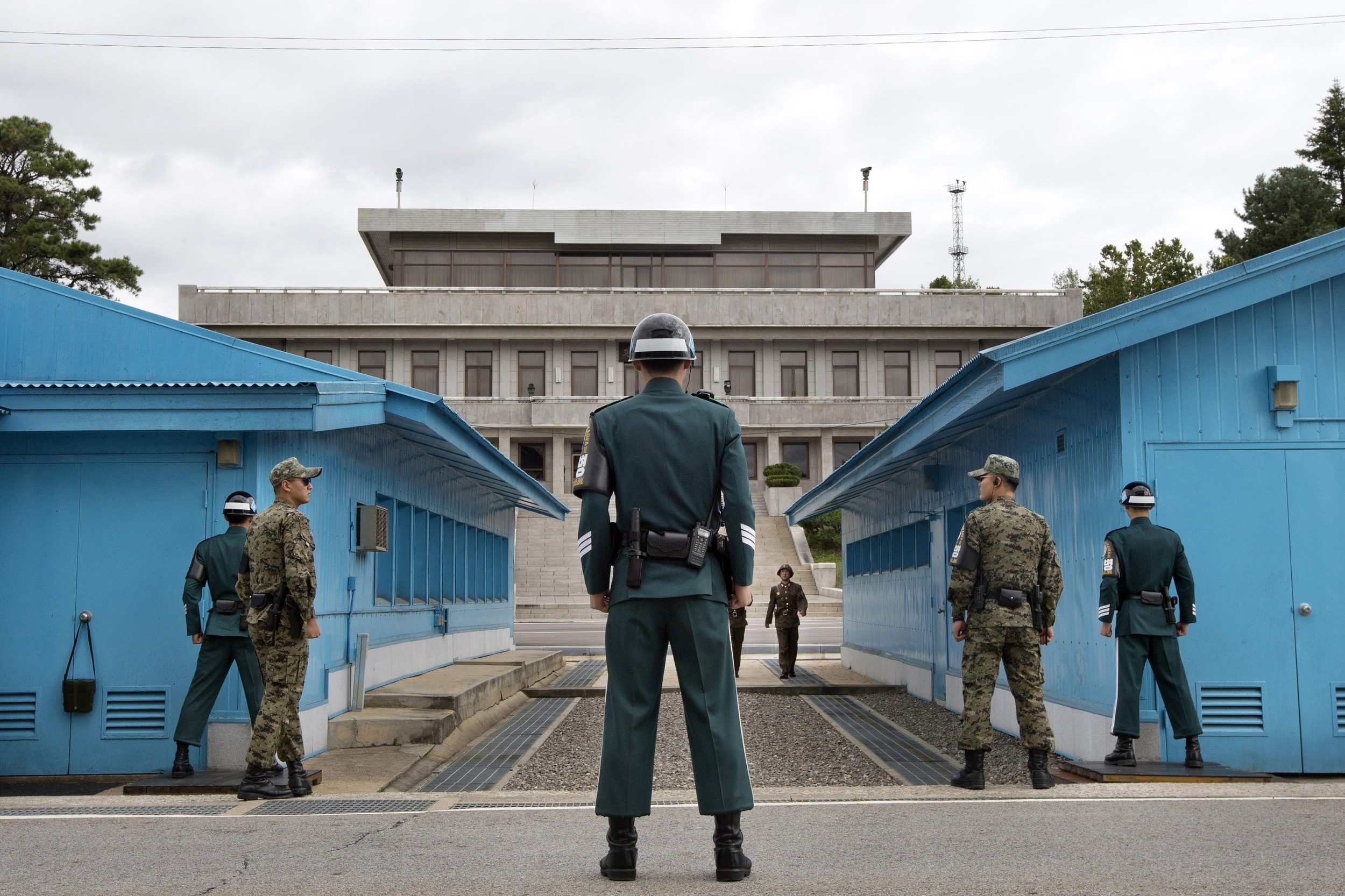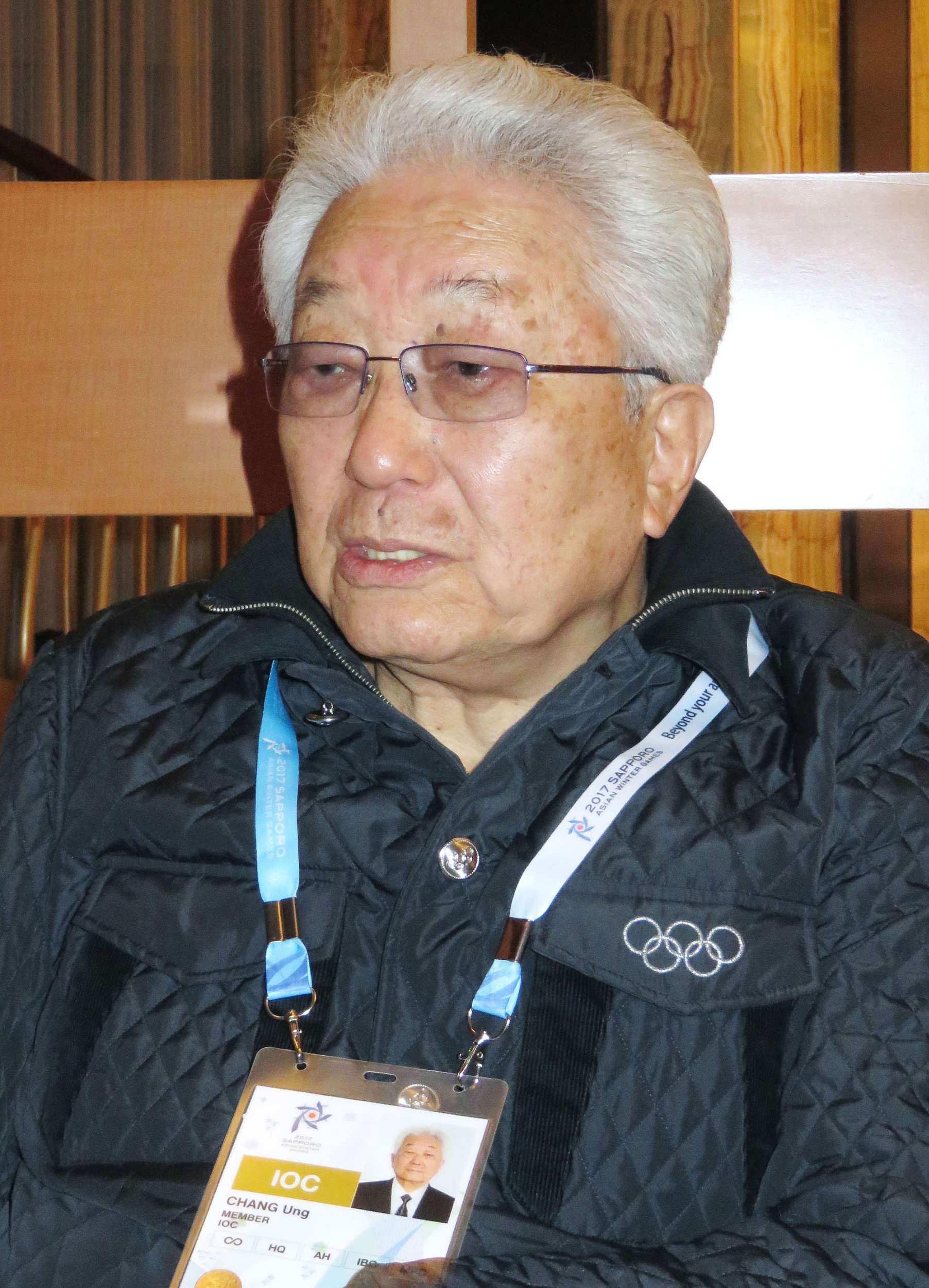
Politics
13:02, 26-Jun-2017
DPRK expresses doubts over South Korea's Olympic invitation

A top DPRK sports official voiced doubts over a proposal by South Korean President Moon Jae-in to form a unified Olympic team, citing political tensions and a lack of time, a report said.
The comment by Chang Ung, Pyongyang's delegate to the International Olympic Committee (IOC) came after Moon suggested that the two countries pool their athletes to form a joint team for the 2018 Winter Games next year in South Korea.
The countries are separated by one of the world's most heavily-armed borders and remain technically at war after the Korean War ended with armistice in 1953 instead of a peace treaty, and Pyongyang boycotted the 1988 Olympics in Seoul.

The Demilitarized Zone, the military border separating the two Koreas, in Panmunjom, South Korea./VCG photo
The Demilitarized Zone, the military border separating the two Koreas, in Panmunjom, South Korea./VCG photo
Organizers of Pyeongchang 2018 have urged DPRK to take part to make them a "peace Olympics".
But unlike the summer version, the winter games have minimum qualifications because of the risks inherent in snow and ice sports, and so far no DPRK athletes have met the required standards.
That raises the prospect that none will attend, even if political issues over the country's nuclear and missile ambitions do not intrude.
A unified group could allow the DPRK representatives to take part in team events such as ice hockey.
But with only seven months to go before the Games open in the South Korean resort of Pyeongchang, Chang said there was not enough time to reach an agreement.

Chang Ung, the DPRK's delegate to the International Olympic Committee./VCG photo
Chang Ung, the DPRK's delegate to the International Olympic Committee./VCG photo
"From a point of an Olympics expert, it is already too late," Chang told South Korean cable news outlet Channel A at the opening of the World Taekwondo Championships in the South.
A former national basketball captain and DPRK's sole IOC member, Chang stressed that the so-called sports diplomacy takes months of painstaking preparations and political coordination.
Both countries held more than 20 meetings over six months before forming a unified team for the 1991 World Table Tennis Championships in Japan, he added.
"The political situation should be resolved first. Politics lies above sports," Chang told Channel A late Sunday, adding that the ping-pong diplomacy that helped improve China-US ties in the 1970s came after years of political negotiations.
"The achievement was made using ping pong as a catalyst, because a political foundation was already laid out," he said, adding: "The world says ping pong made everything happen, but it's not true."
South Korea's new president Moon Jae-in, who took helm in May, advocates engagement with Pyongyang to bring it to the negotiating table, and Seoul's sports minister Do Jong-hwan has also suggested holding some Olympic events at a ski resort in DPRK's capital city.
But Chang expressed skepticism, saying: "It's easier said than done."
(Source: AFP)

SITEMAP
Copyright © 2018 CGTN. Beijing ICP prepared NO.16065310-3
Copyright © 2018 CGTN. Beijing ICP prepared NO.16065310-3